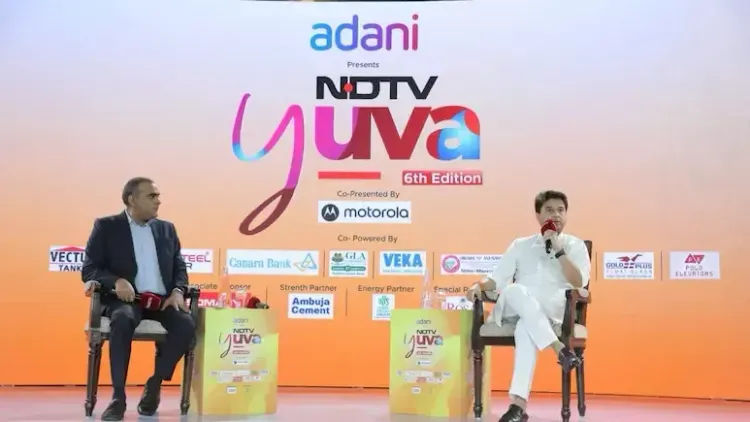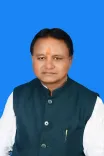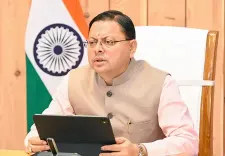Consistently Embracing Challenges: Jyotiraditya Scindia

Synopsis
Key Takeaways
- Embrace challenges to foster growth.
- Step out of your comfort zone for exponential growth.
- Critical thinking is essential in education.
- Youth drive major societal changes.
- India's demographic advantage is significant.
New Delhi, March 26 (NationPress) Union Minister Jyotiraditya Scindia, reflecting on his time at Harvard, shared that he has always aimed to embrace challenges and encouraged students to venture beyond their comfort zones to truly thrive.
While speaking at the NDTV Yuva Conclave, the Union Minister emphasized the pivotal role of young Indians in shaping a developed India (Viksit Bharat).
“I have always sought to embrace challenges. If I could offer you any advice, it would be this - consistently step outside of your comfort zone. Your growth will only occur when you leave the environment where you feel comfortable,” he stated during his address at the conclave.
Reflecting on his experiences at Harvard, he mentioned how his parents were initially apprehensive about him going abroad, fearing the challenges he might encounter.
“My father and mother were not particularly enthusiastic about my decision to study abroad. They worried I might struggle or feel isolated. I was curious, yet scared; I was headed to a different country. Although I had attended a boarding school, this experience was even more distant. I applied independently and was fortunate to gain admission to one of the world's premier institutions,” he recounted.
Scindia also highlighted that in India, students often memorize textbooks for grades, whereas abroad, professors emphasize critical thinking and analysis.
Recalling a transformative moment in his first International Relations class, he noted: “We were tasked with writing a paper on the Congo Crisis. I approached it as we typically do in India - using four primary sources, extracting a paragraph from each, and merging them into what I believed was a stellar paper. I submitted it with confidence.”
“After class, my professor, Akhilesh Ji, requested a conversation with me. I assumed I had excelled in the class. Once everyone had left, he said, ‘I don’t need to know what’s in these books. In fact, I authored one of these texts myself. What matters is your analysis. What do you think was correct or incorrect? Take your paper back and rewrite it.’ This was the essence - not merely learning what to think, but how to think,” he explained.
“Thus, always remain outside your comfort zone. Seek to explore uncharted territories,” he advised.
Scindia described the passing of his father, Madhavrao Scindia, as the most transformative challenge he faced.
“It was a profoundly challenging period for me - fulfilling his dreams and aspirations, embarking on a new path. Public service was uncharted territory for me. I trained as an economist and worked in investment banking. However, I now needed to transition into public service. I had participated in his campaigns since I was 13 or 14, but this was an entirely new chapter for me,” he recalled.
He remembered a valuable piece of advice from his father: “Politics should never be the end goal. Review history, and you will see that every major shift, revolution, or innovation, whether thousands of years ago or in the contemporary digital era, was driven by the youth.”
With 70 percent of India's population under 35, he referred to it as the nation’s demographic and democratic advantage.
“We’re discussing nearly 90 crore individuals - three times the population of the US and twice the total population of Eastern and Western Europe,” he pointed out.
Highlighting India’s flourishing startup ecosystem, he stated, “Previously, we had only a few startups. Presently, we boast nearly 1.75 lakh startups and over 100 unicorns.”
Scindia also discussed key government initiatives aimed at empowering India’s youth, including the PM Internship Programme, which connects young professionals with the leading 500 companies, with 8,000 enrollments this year and a budget of Rs 2,000 crore.
He underscored a Rs 6,000 crore investment in research and development to provide universities access to global research, aiding India’s transition from a “services nation” to a “product nation.”
The Union Minister stated that under Prime Minister Narendra Modi: “We are evolving from Amrit Kaal to Shatabdi Kaal - transitioning from a developing nation to a developed India, from a dependent India to a self-reliant India. This is our vision and commitment,” he affirmed.










